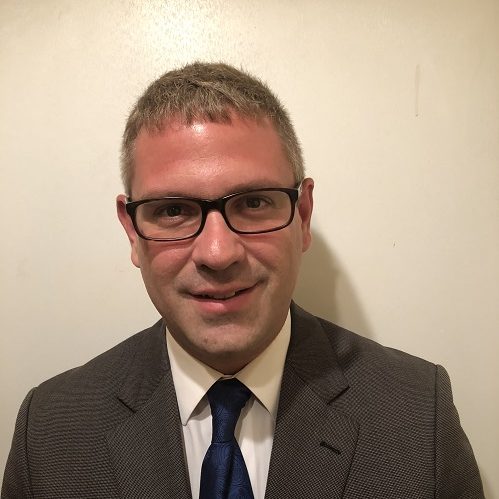Dr. Hay Eytan Cohen Yanarocak of JISS: Turkey is eager to exclude Syria from negotiations because it does not recognize the government of al-Assad and does not want to grant it legitimacy by engaging in talks.
The Media Line, 29.10.2018

By Victor Cabrera
Following weeks of relative quiet in Idlib Province, forces loyal to Syrian President Bashar al-Assad launched an assault against rebel groups that killed seven civilians. The move casts a shadow over a Russia-Turkey cease-fire agreement forged in September, stipulating that anti-regime fighters withdraw all heavy weaponry from the territory in order to avert a major offensive.
Notably, neither representatives of the Syrian government nor rebel groups had any involvement in formulating the truce.
“Turkey is eager to exclude Syria from negotiations because it does not recognize the government of al-Assad and does not want to grant it legitimacy by engaging in talks,” Dr. Hay Eytan Cohen Yanarocak, an expert on Turkish foreign policy at the Jerusalem Institute for Strategic Studies, conveyed to The Media Line.
Idlib is one of the last “de-escalation” zones in Syria, overseen by Russia, Turkey and Iran. The United Nations has sought protection for the province’s estimated 3 million residents and, prior to the signing of the cease-fire, the UN Office for the Coordination of Humanitarian Affairs warned that the situation “has the potential to be the worst crisis in the 21st century if [the Assad regime] goes ahead with a full-scale military operation.”
Despite the grim prospect, the latest attack perhaps was foreshadowed by al-Assad, who recently described the truce as a “temporary measure” and vowed that “this province [Idlib] and others still under terrorist control will return to the Syrian state.”
While the flare-up has not entirely invalidated the deal, the development evidences its fragility due to a dependence on the cooperation of so many competing parties.
Dr. Nikolay Kozhanov, Academy Associate at the London-based Chatham House think-tank and a former attaché at the Russian Embassy in Tehran, stressed to the Media Line that a “conflict in Idlib is not in Moscow’s interest because it is still wary of wars like that in Afghanistan. As such, [President Vladimir Putin] is compelled to secure the entire region because he realizes that it is impossible to win in Syria by military force without severe bloodshed.”
As regards the Islamic Republic, he elaborated, “while we should not exclude provocations, I don’t think that we will see the Iranians making trouble for now. The re-introduction of American sanctions has inflicted enough pressure to keep them interested in maintaining the international community on their side.”
The central provisions of the Idlib truce call for the removal of “all radical terrorist groups” by mid-October, a deadline that was not met; the restoration of transit through two crucial highways by the end of the year; the delineation of a demilitarized zone of 15 to 20 km (9 to 13 miles) between al-Assad’s forces and rebel-held areas; and the establishment of Russian and Turkish patrols to maintain the calm.
Although the goals are explicit, experts worry that the mechanisms for their implementation remain vague, especially with respect to how Moscow and Ankara plan to distinguish between terrorist and rebel groups.
For example, Hurras al-Din and Ansar al-Din, both considered terrorist groups by Damascus, have denounced the deal as a “great conspiracy.” For its part, Hayat Tahrir al-Sham (HTS), a powerful amalgamation of al Qa’ida-linked jihadists that controls over sixty percent of Idlib, is viewed by al-Assad and his allies as the key entity needing to be reined in.
“HTS is not under control,” Dr. Yanarocak explained, adding that “the group acts independently but since the Sochi [cease-fire] agreement it has an interest in avoiding coming under a new offensive. Additionally, neither side would like to be the one responsible for breaching the agreement, including rebel and terrorist bodies.”
Nevertheless, the Syrian Observatory for Human Rights has registered “a significant escalation of HTS violations in northern Syria, where the group has raided a number of villages and arrested dozens of individuals.”
This comes as the leaders of Russia, Turkey, Germany and France over the weekend met in Istanbul, where they called for lasting calm in Idlib and, on a macro level, a political solution to end Syria’s seven-years-long war.
Meanwhile, the Turkish state-run Anadolu Agency reported that the country’s army has started transferring into Idlib weapons and armored vehicles meant for monitoring the region.
“Quite a lot of things will depend on how active Turkey will be,” Dr. Kozhanov concluded, noting that the “Russians don’t have much to lose: If Ankara succeeds then Putin gains stability in the area, but if it fails then the Russians can find someone else to blame.”
The Media Line, 29.10.2018





 - בניית אתרים
- בניית אתרים